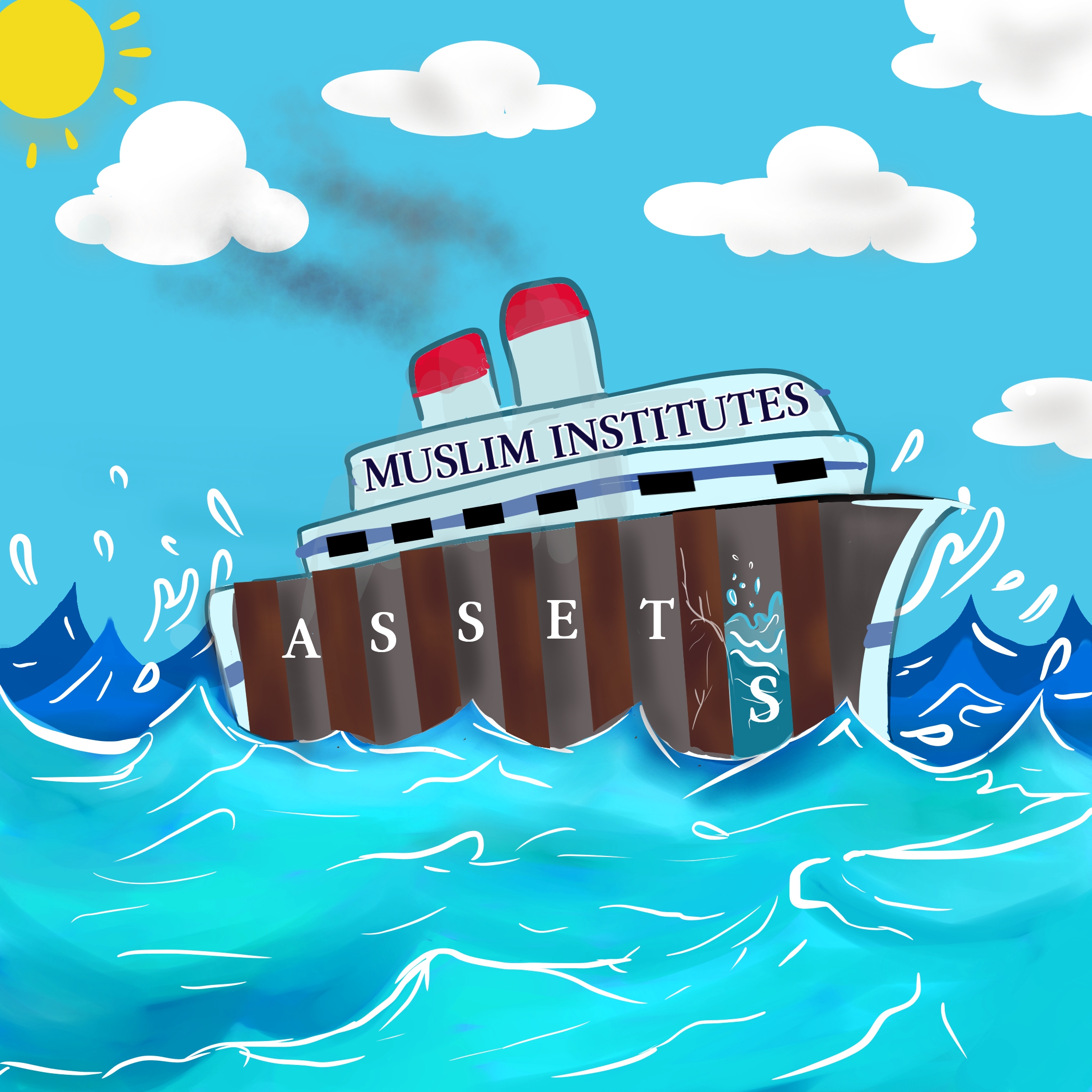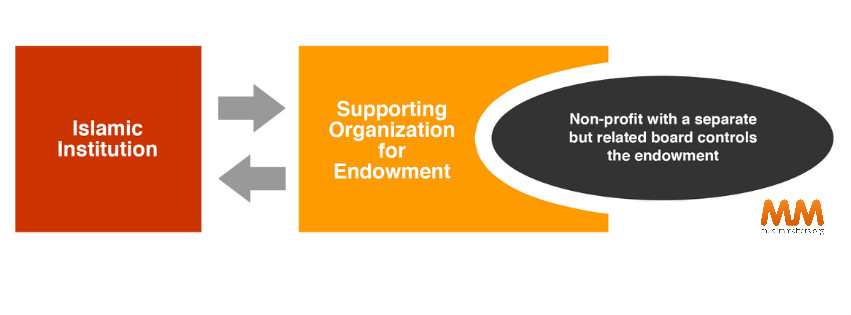#Society
A Guide To Protecting Muslim Institutions In The Trump Era
Published

Everyone in the United States with some basics civics knowledge knows that the Constitution of the United States has a bill of rights with 10 Amendments in it. The first words of this bill of rights are as follows:
[blockquote]Congress shall make no law respecting an establishment of religion, or prohibiting the free exercise thereof;[/blockquote]
We also have a President of the United States who promised to shut down Muslim religious institutions during the 2016 Presidential campaign. His administration is staffed by many formerly “fringe“ Islamophobes. None of this is news. Islamic institutions are worried about what to do.
The Constitution Does Not Absolutely Protect Religious Freedom
Constitutional law is a vast and rapidly changing field. The fact that the Constitution says something does not mean it will be so. This has been true many times in American history. The social and political landscape of the United States has always been more important than the text of the Constitution. If enough people dislike a small minority group enough, the courts will give way on what were previously core principles. We had the exact same Bill of Rights when the government of the United States rounded up Japanese American citizens and placed them in internment camps. Relying on “well the courts have said X or Y” and someone doing analysis on the current state of the law risks missing the mark. Now I am not saying, at all, that every unconstitutional or unlawful measure should not be resisted aggressively in courts. They should be. We should support the ACLU, CAIR, Muslim Advocates and every other organization that is looking to lead constitutional law litigation. However, we should allow for the possibility that these efforts may fail.
Keep supporting MuslimMatters for the sake of Allah
Alhamdulillah, we're at over 850 supporters. Help us get to 900 supporters this month. All it takes is a small gift from a reader like you to keep us going, for just $2 / month.
The Prophet (SAW) has taught us the best of deeds are those that done consistently, even if they are small. Click here to support MuslimMatters with a monthly donation of $2 per month. Set it and collect blessings from Allah (swt) for the khayr you're supporting without thinking about it.
Nationally and in several states, contempt for the Muslim community has never been greater than the conditions of the 2016 elections. This has subsided some, but 2017 is not an election year. This animosity has been reflected at the state and federal levels. Yes, many Muslims were heartened by the crowds at airports. That speaks to the fact that there are decent people in the United States, or at least in the large cities. It does not change the fact that we have a hostile political environment and that, with the right mix of circumstances, places of worship, Islamic schools and large institutions can be shut down. We should act as though this threat is real.
The risk to Muslim institutions does not come from the law. The law is only a tool. This tool can be used to serve the interests of Islamophobes and it may also be used to help protect Muslim institutions.
The goal in writing this is not to provide a complete defense. No asset protection plan is absolute. I can certainly envision scenarios where nothing I am suggesting would work, particularly if there is a break down in civil society as we know it. However, it may be effective short of federally imposed martial law. A disclaimer, this is not legal advice. If you are part of an institution, rely on a qualified lawyer to advise you and implement it.
This is NOT about Protecting Organizations Per Se
The other thing about the strategy is that the goal is not to protect an individual organization. So, for example, if an organization runs an Islamic Center in buildings that includes a Mosque and a school, the organization that runs the center is not necessarily protected, however the property and buildings are protected to be used for a stated purpose, for Muslims to worship and for an Islamic School.
In my role as a fiduciary for the Islamic Society of North America (ISNA), my duty is less to ISNA the institution, than it is to the donors of ISNA, who have given their money to an organization with the understanding that it will be used for the purposes ISNA has repeatedly said it will use the funds for. So, if we have a scholarship fund, I want to make sure it continues to be used for scholarships. If we have land and a building for a masjid, I want to make sure it is used as a place of worship for Muslims. If ISNA goes away some day because of the social and political environment, it is important that I and other ISNA fiduciaries do what we can to make sure the organization’s mission continues with the assets it has accumulated over five decades.
But What About NAIT?
The North American Islamic Trust (NAIT) is often mentioned by Islamophobes and appears to be a giant target for those who would want to shut down mosques, since it owns so many of them, including much of what is thought to be ISNA’s assets. This organization started as a “National Waqf.” They have a stabilizing influence on local and even national Islamic institutions. Founders of Islamic centers had a mechanism to make sure future board members won’t do things that will be harmful to the interests of the waqf. However, the founders of NAIT would have likely not envisioned the kind of threat the American Muslim community is facing now.
NAIT “owns” property in two different ways. The first is that NAIT owns property directly in the name of its organization. As I will describe below, this is the wrong way to do it for anyone, and NAIT does not follow this model with newer and likely most acquisitions. In other instances, they have contracts with institutions when they hold land and liquid investments. NAIT holds much of its real property with something called a “Declaration of Trust.” This document is best understood to be a contract. Like any Trust, it is a contract between a Grantor and Beneficiary, who creates the contract, and a Trustee, who would be NAIT. The organization that signed over it’s deed to NAIT. This is the right idea. However, there is room for significant improvement. Incorporating NAIT in a protective role continues to be useful in the same way it was useful in the 1970s, when the model started. However, I would structure it differently given our environment. NAIT’s board is aware of the issues I have raised and their process is ongoing. Even so, individual organizations that have their assets entrusted with NAIT should review their status.
Separate Assets
The first thing to do is to separate assets. One way of looking at an Islamic Institution is a ship sailing along a path. The institution is sailing on its assets.
Now if the ship takes a hit along the way, a collision, a torpedo or anything significant enough, the ship, and here I mean the Islamic institution, will sink.
Now a method of allowing the ship to absorb damage is to compartmentalize the hull to improve the vessel’s floodability.” It can absorb hits better. You have probably seen old nautical war movies where ships could use different compartments in their hull to keep a ship from sinking.
In an Islamic Institution context, large or small, assets can be separated and separate nonprofits (separate 501(c)(3) organizations), can be created to manage them. Larger institutions will have a school, a Masjid, an endowment, land for a future project and so forth. When there is just a small Islamic Center, there is just the property itself and the organization that runs it, and you have two different organizations. When the organization grows an endowment, rather than merely functioning month to month, it now has a new asset it must compartmentalize. When the organization gets a school, it gets a new compartment.
Create Charitable Trusts for the Assets
Most non-profits in the United States are structured as corporations. They offer significant flexibility for those charged with managing them and won’t restrict future boards. The thing is though; you want to restrict the freedom of future boards if you are creating a waqf. This is the reason NAIT exists, to future-proof a local institution, so that a future board of a Masjid does not adopt a secular mission. There are certain things you don’t want future boards (or Presidential Administrations) messing with: for example, if someone donated to a masjid as sadqa jaaria to a Masjid, it stays a Masjid in perpetuity. A trust is how you do this.
What NAIT does not do though, is create a charitable trust that is a separate nonprofit organization. It is merely a relationship between two vulnerable organizations. A new organization that is a different nonprofit is a needed component. A major principle of Asset Protection is that if X wins a lawsuit against Y, and Y has an asset needed to pay the judgement, X can likely get it. However, if X wins a lawsuit against Y and Z has the assets needed to fulfill the judgement, X cannot get assets from Z. It is a different entity.
This concept should sound familiar to you. For-profit corporations create subsidiary corporations regularly. The failure of a subsidiary or parent does not affect the survival of all the parts of the operation. The Trump organization for example is composed of about 515 different business entities. Several have failed over the years. The IRS in its website uses the parent-subsidiary model for what are referred to as “Type-1 supporting organizations.” This is a separate charity, the supporting organization, that has a relationship with the supported organization. This relationship may not last forever. If the supported organization no longer exists or if it changes its mission, at least when it comes to the role the supporting organization’s support is based on, the supporting organization can go ahead and start supporting a different organization with the same or similar purpose. Most the board of the supporting organization is appointed by the supported organization. However, there is a degree of independence in the arrangement, and it can be particularly useful in the event of an event that would cause a separation between the two entities. For example, in the event the supported organization is seized by the federal government.
I am going to address some obvious questions about this arrangement. However, I should point out that the supported/supporting organization model is not the only way to set up this protective arrangement and in many cases, it won’t be the most desirable. Don’t assume because I provide an example of a solution that it is the only possible way to do it. However, to establish the charitable purpose of an endowment or real property, it is best to organize the purpose-built charity as a trust. That will always be true.
Create Solid Trust Provisions
In American jurisprudence, Trust property is generally more “sacred” than corporation-owned property. The charitable purpose cannot be changed unless it becomes illegal, impractical or impossible to do so. This is what is known as the cy pres doctrine. Once someone establishes an irrevocable charitable trust for a Masjid, it can only stop being a masjid if a designated prayer space for Muslims becomes illegal, or the location becomes impossible to use for that purpose. So, the first thing a trust requires is a valid Trust purpose. The description must be evergreen in the sense that it should allow for enough flexibility to withstand the test of time but at the same time, it should never give enough leeway to future generations to ignore the fundamental purpose for which the entity was set up. For example, it would not be a good idea to create a multi-million-dollar trust for resettlement of Syrian refugees, since Syrian refugees is not a concern that is likely to exist for decades on end, at least one would hope not. Waqf that are Masajid have endured since the time of Muhammad 
This goes with our desire to make sure the use of donation funds is true to the donor’s purposes.
In going with the nautical analogy, create separate trusts for separate functions. It may seem cautious, but for larger endowments it may make sense to split them up. This would be particularly useful if the endowments had different purposes. For example, a scholarship fund for college tuition would be separate from a scholarship fund for summer camps.
Go West, or maybe East
Situs, the state where the Trust is located, is a vital part of the process. The Attorney General of a state has jurisdiction over charities. In many states, the power over religious corporations is restricted. However, this is typically not the case with trusts. Charities don’t have shareholders that can get upset at management. If a scholarship exists for youth camps, it may be of interest to a state Attorney General if instead of scholarships, the money went to the federal government to punish the Muslim community. Misuse of charitable funds is something an Attorney General should be interested in under normal circumstances. Folks taking money away from charitable purposes violate public policy. This part is well established. The Federal government, namely the IRS, regulates Charities in its role as a tax collector, however this is a different kind of authority.
What is not especially well established, is how a State Attorney General would respond if the Federal government takes punitive actions against a specific religious community. The weight to the State Attorney General’s jurisdiction in protecting charities could be a powerful bulwark against the Islamophobes who are driving policy in Washington D.C.
Of course, it is possible Attorneys General and state governments may not be interested, or they are in states where the political and social environment does not permit their sticking up for religious freedom and they just can’t without risking their jobs. This may be particularly the case if punitive actions against Muslim community institutions take place after some sort of a national emergency, a war, or a domestic bomb or shooting.
A Trust or a Corporation can be sited in any state. So, if you are in Oklahoma, you can easily start a Delaware Corporation. Indeed, most publicly traded corporations are organized under the laws of Delaware. This is also true for Asset Protection Trusts for families, which are set up only in certain “asset protection states,” usually Delaware, South Dakota, Alaska, Wyoming, and Nevada.
Charities do not consider the same kinds of things individuals and families do for LLCs and Asset Protection Trusts. We are not as concerned about individual state laws, except that we do want to make sure the state Attorney General has a strong protective jurisdiction for charitable assets. What we care about is the social and political environment of the state. Not every state is the same when it comes to Islamophobia.
Muslims who live in the 30 states where Trump won should move all charitable assets to trusts that have a situs in another state as quickly as they can. I would say this is also true for any state where politicians can conceivably win elections by attacking any minority group. States with politically polarized electorates when it comes to how minorities are treated should not be where Muslim charities hold Waqf assets.
I am from California, the largest and perhaps the least dependent of the United States. It has environmental and anti-discrimination laws, including religious discrimination, that are better than the rest of the United States. Not only is it a place where the overwhelming majority of the state is hostile to the Trump agenda, the state government has committed to pushing back aggressively to protect the rights of minorities. While every state has challenges, and California has many, it is unlikely that any statewide election can be won on the strength of hatred against a minority. However, if in future years the politics of a state changes, a Trust can be designed to switch its situs to another, friendlier jurisdiction.
There are several states other than California where Trump lost by large margins. However, this should not be the only standard by which we decide if we will subject our charities to the law of that state and register the charity with the Attorney General (in states that have this procedure). We should consider the Attorney General’s willingness to fight to protect charitable assets when religious freedom is at stake. It would be helpful for Muslims in all potentially good states to reach out to the Attorney General’s office and find out if they will take a stand in favor of religious freedom and to use their jurisdiction to protect Muslim charitable assets from any assault by the Federal Government, no matter if we are at war, there is an act of terrorism or some other national emergency or if there is a claim of guilt by association. The real question for Attorneys General is about policy, not law, and if they are willing to go to court against the might of the federal government.
What to do now
Part of the work I do, Estate Planning, is to consider things that are likely to happen as well as things most people may not imagine would happen to them, but regularly happen to other people. Here we are planning for things that are not normal. We have a bill of rights, courts, federalism, state law and the immense but not unlimited power of the Presidency and federal government, which is committed to working against religious freedom. Your community can take some meaningful steps to protect its institutions.
Here are a few:
- Educate your community and your community leaders about how to protect Islamic institutions.
- Get a lawyer with expertise in charitable trusts to review the ownership of the organization’s assets and get some recommended solutions.
- Start moving assets that are appropriate for an endowment to one or more charitable trusts in the best jurisdiction you can find, which is likely California.
Keep supporting MuslimMatters for the sake of Allah
Alhamdulillah, we're at over 850 supporters. Help us get to 900 supporters this month. All it takes is a small gift from a reader like you to keep us going, for just $2 / month.
The Prophet (SAW) has taught us the best of deeds are those that done consistently, even if they are small. Click here to support MuslimMatters with a monthly donation of $2 per month. Set it and collect blessings from Allah (swt) for the khayr you're supporting without thinking about it.
Ahmed Shaikh is a Southern California Attorney. He writes about inheritance, nonprofits and other legal issues affecting Muslims in the United States. He is the co-author of "Estate Planning for the Muslim Client," published by the American Bar Association. His Islamic Inheritance website is www.islamicinheritance.com


An Iqbalian Critique Of Muslim Politics Of Power: What Allamah Muhammad Iqbal’s Writings Teach Us About Political Change

Muslim Book Awards 2025: Finalists

Far Away [Part 3] – Wounded

Darul Qasim College Given License To Grant Master’s Degrees

MM Wrapped – Our Readers’ Choice Most Popular Articles From 2025

Restoring Balance In An Individualized Society: The Islamic Perspective on Parent-Child Relationships

Ahmed Al-Ahmed And The Meaning Of Courage

AI And The Dajjal Consciousness: Why We Need To Value Authentic Islamic Knowledge In An Age Of Convincing Deception

Moonshot [Part 32] – FINAL CHAPTER: A Man On A Mission

Far Away [Part 1] – Five Animals

[Dhul Hijjah Series] Calling Upon the Divine: The Art of Du’a (Part 1)

IOK Ramadan 2025: Four Steps | Sh Zaid Khan

IOK Ramadan 2025: Do Your Best | Sh Zaid Khan

IOK Ramadan 2025: Giving Preference to Others | Sh Zaid Khan

IOK Ramadan 2025: Which Group Are We In? | Sh Zaid Khan
Trending
-
#Life1 month ago
Op-Ed – When Islamophobes Try To Intimidate Us, They Underestimate Our Resolve: A Call to Stand With America’s Muslim Students
-
#Current Affairs1 month ago
Who’s Afraid Of Dr. Naledi Pandor? – Zionist Panic and a Visa Revoked
-
#Life1 month ago
Owning Our Stories: The Importance Of Latino Muslim Narratives
-
#Islam2 weeks ago
Restoring Balance In An Individualized Society: The Islamic Perspective on Parent-Child Relationships












